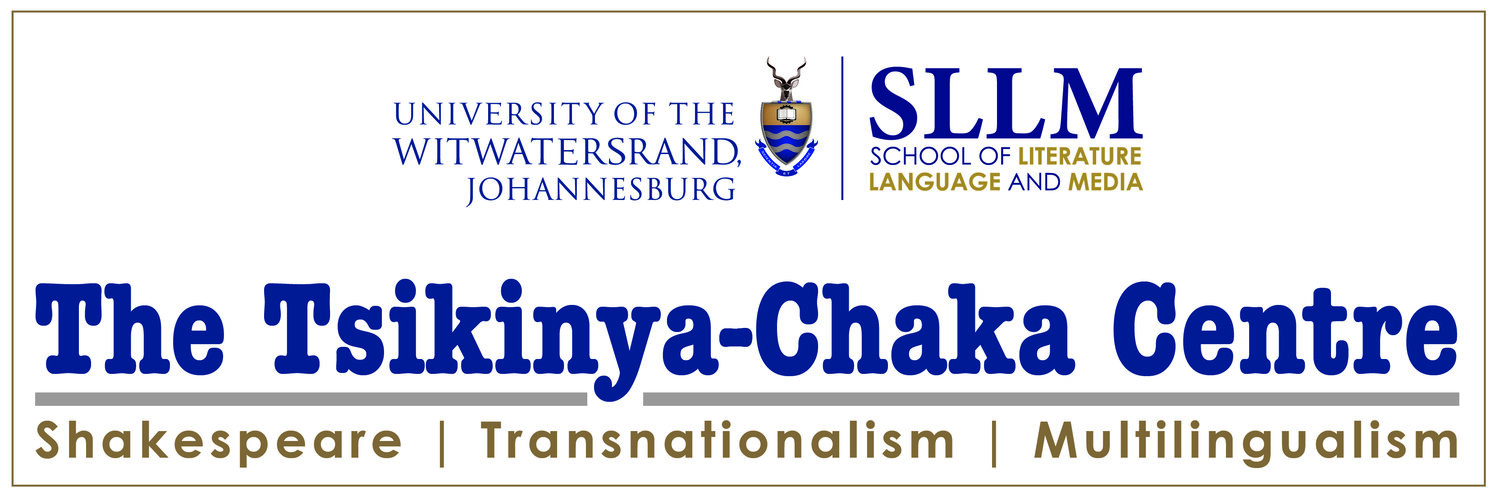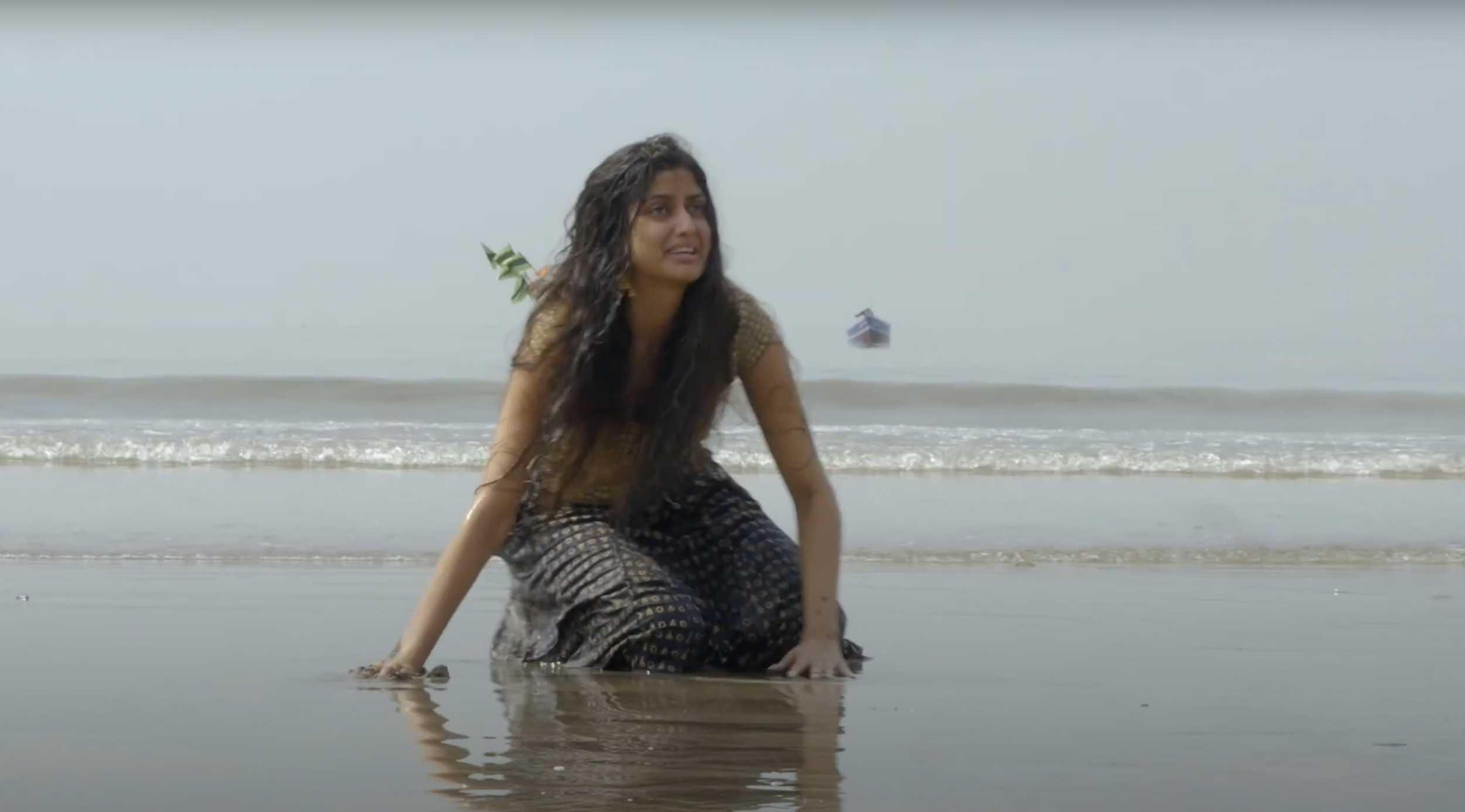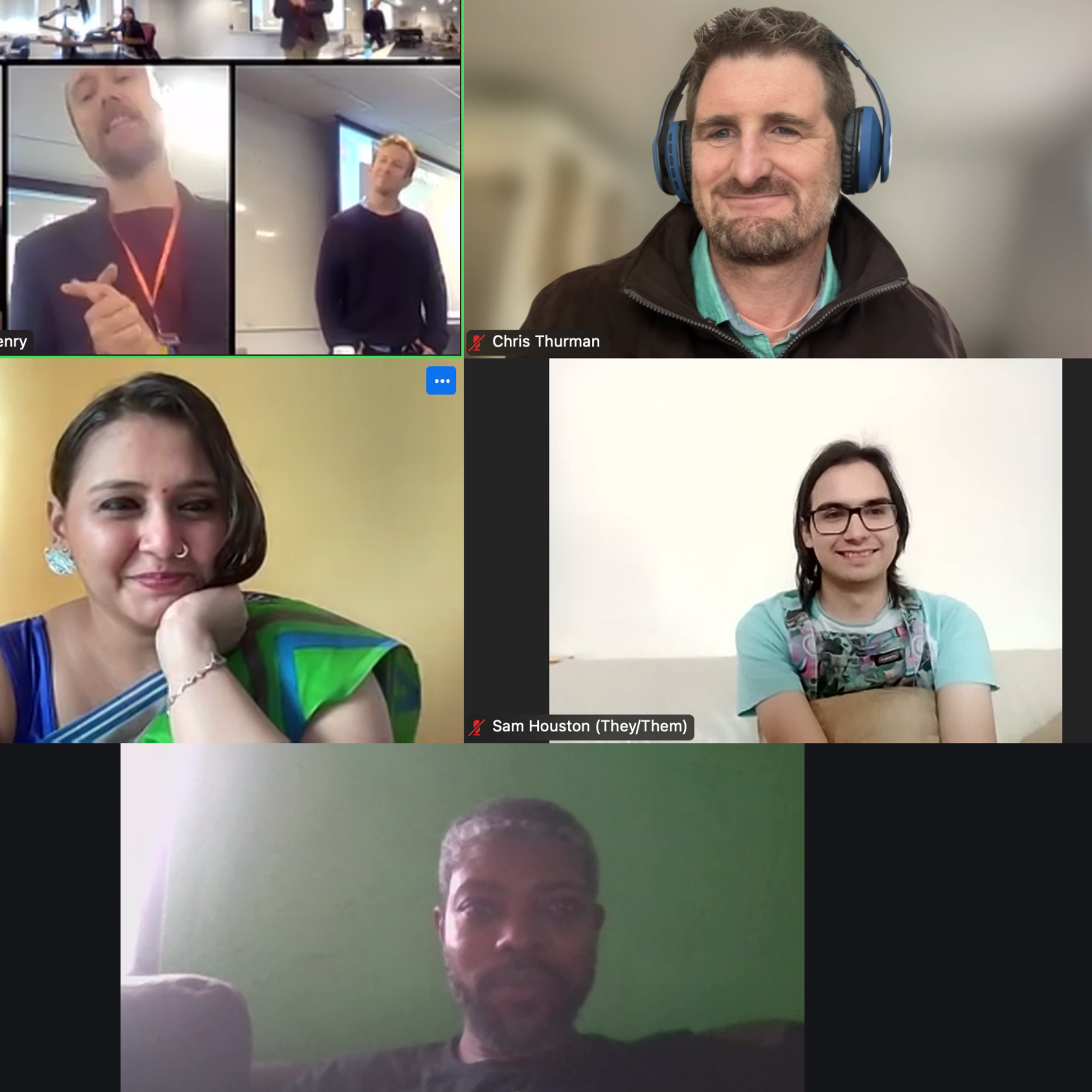Green/Blue Shakespeares at the BSA conference
At the British Shakespeare Association (BSA) conference held in York at the end of June, representatives of the Decentred Shakespeares Network from India, Ghana, South Africa and the UK participated in a hybrid panel discussion on digitally-connected, site-based practice in littoral zones: those symbolically rich, historically significant and visually evocative spaces where the land meets the sea.
The Decentred Shakespeares Network (DSN) is the brainchild of creative producer Ben Crystal, and Henry Bell and Stephen Collins of the University of the West of Scotland (UWS). In 2022, the DSN initiated Pericles on the Seas, a global Shakespeare performance project connecting Brave Spaces India in Mumbai, Act For Change in Jamestown, Cena IV-Shakespeare Company in Sao Paulo and UWS students in Ayr.
Pericles on the Seas - India
Pericles on the Seas - Ghana
Pericles on the Seas - Scotland
The DSN was “born from the greater engagement with digital practices that emerged from Covid-era lockdowns”, along with “the need to develop a Shakespeare scholarship fit for the 21st century . . . championing the work of scholars and theatre makers outside of the Anglo-European school in order to reverse the traditional flows of knowledge within the study of, and making of, Shakespeare’s works”.
South Africa’s 2020 #lockdownshakespeare initiative was an additional spur to the formation of the DSN, as was the virtual seminar “Lockdown Shakespeare: Transnational Explorations”, co-hosted by the Tsikinya-Chaka Centre in March 2021. TCC director Chris Thurman has been fortunate to participate in DSN events and projects - which, in turn, signal exciting new directions for South African Shakespeareans and creative practitioners to pursue.
Clockwise from top left: Henry Bell, Ben Crystal, Chris Thurman, Sam Houston, Nii Kwartelai Quartey, Neha Vyaso
The BSA conference was an opportunity for this group of practitioners and academics to explore further “how digital, site-based practice can help to decolonise Shakespeare through transnational collaboration.” Their work was the focus of the panel, “‘Hark, do you hear the sea?’: The littoral in Shakespeare as a site for linguistic and cultural resistances and de-centred practice in Ghana, India, Scotland and South Africa”.
As in the performance practice created by the network, the presentations were recorded at historically significant sites on or near the shoreline. They were shared in a hybrid session facilitated by Henry Bell and Ben Crystal with in-person delegates in York, while Neha Vyaso (Mumbai), Nii Kwartelai Quartey (Jamestown), Sam Houston (Ayr) and Chris Thurman (Cape Town) joined online to discuss their videos.
Vyaso spoke about her group’s rendition of the fishermen rescue scene from Pericles, in which professional actors worked alongside members of Mumbai's fishing community. This collaboration breathed new life into the scene and the broader narrative of the play, employing a linguistic mix of Hindustani, Hindi, and Marathi. By letting the characters’ social roles guide their dialect, the Mumbai performance highlighted the class dynamics that are as relevant in today’s India as they were in Shakespeare’s time.
Neha Vyaso
Nii Kwartelai Quartey
Sam Houston
Kwartelai Quartey shared insights into the historical layers compacted into the “shawarma” of Jamestown: simultaneously a small fishing community, a thriving arts hub and part of one of Africa’s megacities. In their contribution to Pericles on the Seas, as well as in Act for Change’s 2021 Othello project, Kwartelai Quartey and his colleague Collins Seymah Smith used their local knowledge as guides with James Town Walking Tours to “draw new meaning from Shakespeare’s texts through specific choices about language, character and site . . . The sea and Jamestown’s relationship to it act as both the anchor and primary point of departure” for their adaptations.
Houston considered the representation of Scottish identity in Shakespeare and its relationship to the imposition of the English language in Scotland. He explored how the Pericles on the Seas project - working with practitioners in three different countries outside of the Anglo-American tradition, coupled with Crystal’s approach to ensemble - enabled the UWS students to bring their own life experience, and especially their Scottish English sociolect, into their performance. This led to “an intentionally distanced relationship to the text of Pericles”.
[WATCH VIDEO ABOVE] For his part, Thurman noted Bell’s observation that South African artists have been prolific in the format of the Covid-era and post-Covid self-recorded monologue, and queried why this has rarely extended to the kind of site-specific, collective performance seen in the Pericles on the Seas model. Taking their cue from colleagues in the Decentred Shakespeares Network, Thurman suggested, South African scholars and practitioners might explore the potential of historically significant maritime or littoral sites to spur new forms of Shakespearean political-ecological activism.
With no Pericles performance artefact to engage with, Thurman turned his attention to another of Shakespeare’s “watery” late plays, The Tempest, which has a complex South African reception history. Nevertheless, while a handful of post-apartheid Shakespeare productions might be situated within a land-based paradigm of “green” stagings and ecodramaturgy, “blue” Shakespeares are conspicuously absent - despite South Africa’s lengthy coastline (which makes the country particularly exposed to the oceanic consequences of climate change) and a history that has been shaped by sea crossings and maritime encounters.
As a gesture towards this still-unrealised “oceanic imagination” in South African Shakespeares on stage and screen, Thurman’s video follows an incomplete “journey to the sea” in Cape Town, asking: “Where exactly is the shore?” He visits two sites that were previously on or near the edge of the sea. First: the Riverlands precinct in Salt River, linked to a battle in 1510 between Portuguese sailors and the Khoekhoe, and more recently the scene of contestation between corporate giant Amazon (which has established its headquarters there) and activists seeking recognition of the significance of the place to Khoe and San peoples. Then he travels to the Castle of Good Hope, which was literally “littoral” until the 1930s, when Cape Town’s foreshore was reclaimed from the sea. The Castle, long a symbol of slavery, of the brute force and cruelty of colonial conquest, and of the apartheid state’s military might, is today an inoffensive tourist site. Taking in a panoramic view from the Castle ramparts, Thurman concludes by asking: what does Shakespeare in South Africa look like from this perspective?
Check out the Digital Materials page on the Decentred Shakespeares Network’s website to watch the BSA panel videos, a re-released version of Pericles on the Seas and more!







